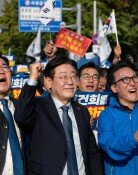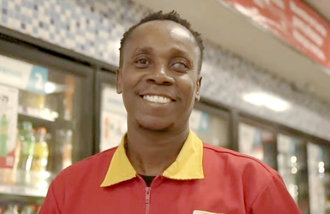Meeting is always better than not meeting
Meeting is always better than not meeting
Posted August. 20, 2024 08:27,
Updated August. 20, 2024 08:27
Leaders from both the ruling and opposition parties are set to convene on Sunday at the National Assembly. Lee Jae-myung, the leader of the main opposition Democratic Party of Korea, wasted no time following his re-election, proposing a summit with President Yoon Suk Yeol and a meeting with Han Dong-hoon, the leader of the ruling People Power Party. Han's prompt and positive response led to a swift agreement on the meeting's schedule. However, the Presidential Office responded cautiously, emphasizing that "normalizing the National Assembly and reaching an agreement between the ruling and opposition parties should come first." Despite this, there is a shared understanding of the summit's importance, and attention now turns to whether it will result in a face-to-face between President Yoon and Leader Lee.
Given that both parties have recently solidified their leadership teams through party conventions, it is only natural that their first step should be to restore political dialogue. The prolonged political standoff has largely been a consequence of both parties prioritizing internal matters over interparty relations following the April 10 general elections. With both sides having reorganized and ready to engage with public opinion, Han and Lee have a crucial opportunity to demonstrate their capability to address national concerns and improve the people's livelihoods.
Yet, the prospects for a productive outcome from this leaders' meeting are far from bright. From the outset, the two parties have already begun to clash over key issues proposed by Lee, such as the special investigation into Lance Corporal Chae Su-geun’s death and the proposed 250,000-won universal support payment. It remains uncertain whether these contentious issues can be navigated towards a compromise. Furthermore, as a key figure in the government administration, Han is unlikely to take a stance that deviates from President Yoon’s position. The lingering tension between President Yoon and Lee could also hinder any meaningful progress in the discussions. Consequently, this meeting may serve merely as a stepping stone toward more significant dialogues in the future.
In the end, the dialogue that can truly restore political discourse and lay the foundation for cooperative governance will likely need to happen between President Yoon, who holds executive power, and Lee, who wields considerable influence in the legislature. The two leaders did meet once following the April general elections, and just two days later, a bipartisan agreement led to the passing of the special law on the Itaewon tragedy. However, that brief moment of cooperation quickly dissipated. Since then, a vicious cycle has emerged, with the opposition party’s legislative dominance being met with presidential vetoes, deepening the divide, as seen in the recent Liberation Day split and the ensuing harsh rhetoric.
In this frustrating political climate, another meeting between President Yoon and Lee may not yield immediate results, and even arranging such a meeting could prove challenging. Yet, avoiding a meeting is not an option. Without the cooperation of the main opposition party, the president cannot effectively govern, and without government consent, the opposition cannot advance its legislative agenda. If governance and politics are to be preserved, a meeting is imperative. Even if tensions flare, the first step is to meet face-to-face.
Headline News
- Harris ‘first female president’ vs. Trump ‘again 2016’
- N. Korea builds 11-meter rampart after road demolition
- Democratic Party eventually agrees to abolish financial investment income tax
- Drug smuggling is seized twice a day on average this year
- Surrounded by ‘uniforms,’ NHL’s first female coach ‘time-out’







